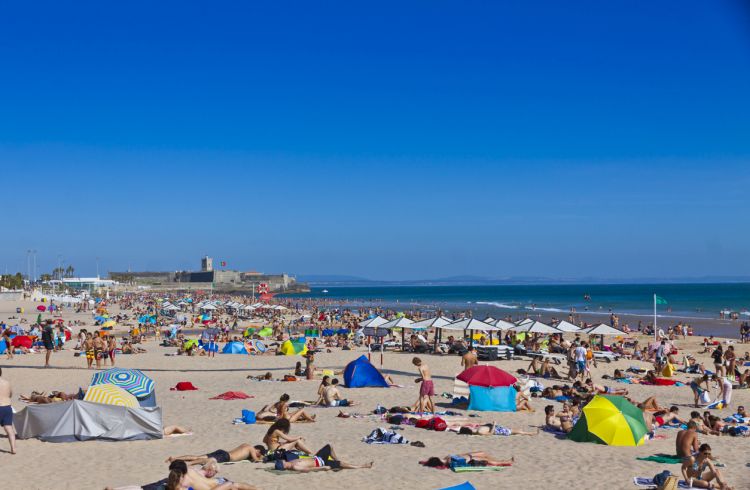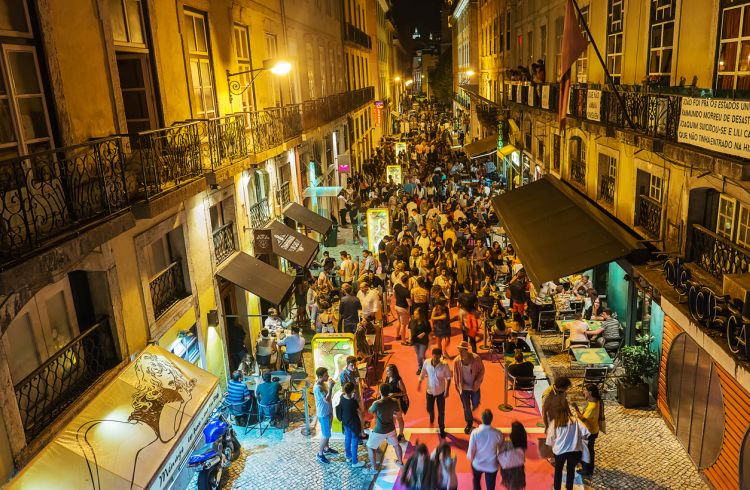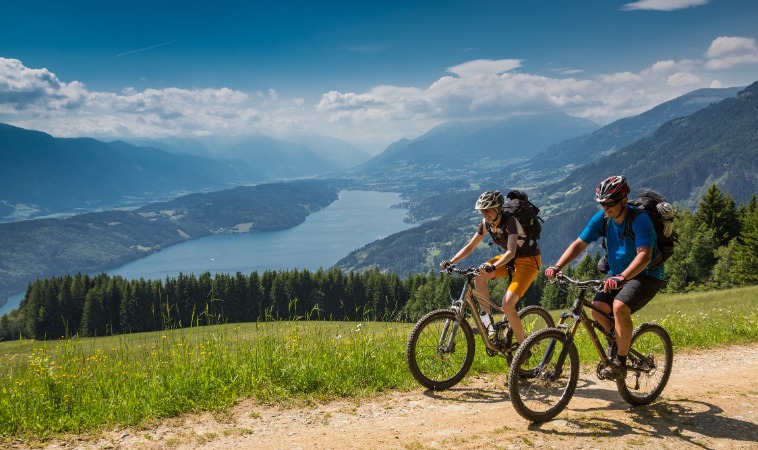Driving in Portugal: Tips & Advice for Safer Road Travel
Is it easy to drive in Portugal? What side of the road do they drive on? What about public transport? Our safety expert shares her tips for safe travels in Portugal.
 Photo © Getty Images/bennymarty
Photo © Getty Images/bennymarty
Portugal has so much to see and do and one of the most important things for visitors to do once they arrive is organize transport. Whether you rent a car or use public transport, here are a few tips to help you get around Portugal safely.
Driving in Portugal
There are plenty of places to hire a vehicle in Portugal. The legal driving age is 18 but to hire a car, the minimum age is 23 or 25 depending on the hire company. If you are an inexperienced driver, you may have to pay an extra premium. You must also have a valid drivers' license. An International Driving Permit is required if you are from a country other than the EU or US, or if you will be staying and driving for longer than six months, but it's a good idea in any case.
By law, your car must have a warning triangle, reflective jacket or vest, and spare wheel in case of a breakdown, and seat belts are compulsory.
In Portugal, you drive on the right-hand side (same as the US) and overtake on the left. Undertaking (overtaking on the right) will see you hit with a 1,000 euro fine. On motorways, the middle lane is for overtaking.
Driving in Portugal can be dangerous. The EN125 in the Algarve, the IC2 and AI (Lisbon-Porto), the IC19 (Lisbon-Sintra), the EN2 (Chaves-Faro), and the EN109 (Porto-Leiria) are particularly dangerous roads. There are lots of windy, narrow roads and in rural areas, many are poorly kept.
There are several toll roads in Portugal. You can pay for them with card or cash, but motorways accept the VIA Verde automatic payment system, using a magnetic card attached to the vehicle’s windscreen. so check that your rental vehicle has a toll tag. There is also a system called Easy Toll, which tends to be easier for visiting motorists. You enter your card details at the border a photo is taken of your number plates. The system then automatically deducts the toll payment every time the registered vehicle passes a toll booth.
As a visitor, you can drive your own vehicle to Portugal for up to 183 days in any 12-month period, and can only use your vehicle for tourism; you are not allowed to loan it to anyone else. If you want to stay longer, you have to apply to the Portuguese Customs authority to have the car legally imported.
Road safety in Portugal
When it comes to road safety, Portugal has one of the less impressive records in Europe, however, authorities have been taking steps in an attempt to improve the statistics; with fatalities dropping by 43% between 2020 and 2020. In 2022, there were 63 road deaths per 1,000,000 of the population compared to the EU average of 46 road deaths per 1,000,000 people.
Some other points to be aware of when negotiating Portugal's roads:
- Watch out for potholes and oncoming traffic. Some roads are also poorly lit so driving at night can be especially hazardous.
- Street signs can be missing, so make sure you have a map or GPS to avoid getting lost.
- Look out for pedestrians on the road. A lot of streets don't have sidewalks and it's not uncommon to see people walking, sometimes four deep, on the road. So take it easy and slow down.
- If you're traveling through rural areas, you may come across livestock on the road. Be cautious when driving around bends and be prepared to stop quickly.
- Watch your speed when you're driving in Portugal. Police are very vigilant and will issue on-the-spot fines. There are also fixed and mobile speed cameras.
- The speed limits in Portugal are signposted in kilometers per hour. The national speed limits are 31 mph (50km/h) in urban areas, 56mph (90km/h) on main roads, and 74mph (120km/h) on motorways.
- It's illegal to drive while using a cell phone. It's a finable offense that could leave your wallet up to 600 euros lighter.
- Dropping litter from the car will cost you 300 euros.
- Don't drink and drive. Any reading over 0.5 mg/ml (0.05%) will result in a hefty fine, the loss of your license, and/or time inside a Portuguese jail cell.
- The emergency number in Portugal is 112.
Should you get stuck in a sticky situation while driving in Portugal, here are a few handy phrases:
- Eu
tenho umpneu furado - I have a flattire - Onde é
a estação depolicia ? - Where is the police station? - Onde
fica oposto degasolina ? - Where is the gas station? - Onde é
a agência doscorreios mais próxima - Where is the nearest post office?
Public transport in Portugal
Portugal has a very reliable and inexpensive public transport system. Trams, trains, buses, and ferries all offer fast and affordable transport. But as with any public transport, users must exercise common sense and appropriate safety precautions while aboard to avoid becoming a victim of petty crime. Keep all bags in front of you, zipped up and locked. Store money and valuables out of sight.
Most public transport companies in Portugal have websites and mobile apps with up-to-date information on timetables, routes, and ticketing. Lisbon's Tram 28 is a popular route for visitors to the capital. Opportunist pickpockets are known to frequent this line so keep an eye on your belongings, secure your valuables and never leave any bags unzipped.
Portugal’s rail system is managed by the state-owned Comboios de Portugal (CP) which operates an extensive, scenic rail network. The fastest and most frequent connections are between major cities such as Lisbon, Porto, Aveiro, Coimbra, Faro, and Lagos.
The extensive bus system operates around the country and are comprised of high-speed buses that connect cities as well as slower regional routes. You can buy tickets online or at bus stations.
Taxis are also readily available and a much-less-crowded alternative to other forms of transport.
In areas including the Portuguese islands of the Azores and Madeira, taxis often make more sense given the shorter travel distances. Always set the fare with the driver before hiring to be sure that everyone is in agreement and there are no unpleasant surprises at the end of the ride.
There are ride-sharing apps including Uber, Cabify, Bolt, BlaBlaCar and Boleia.
Cycling in Portugal
Cycling is also a popular way of traveling around in Portugal. Off-peak times such as April to June and September to November offer the best climate and fewer tourists. There is a network of dedicated bike lanes in cities, long-distance bike paths are popping up on former railway tracks in rural areas, and there are more than 850mi (1375km) of trails and backroads from the north to the south of Portugal. With Gira Bike you can rent bikes to pick up and drop off bikes at docking stations throughout the city. Motorways are off-limits to bikes. Drivers tend to be very bike-friendly.
Related articles
Simple and flexible travel insurance
You can buy at home or while traveling, and claim online from anywhere in the world. With 150+ adventure activities covered and 24/7 emergency assistance.
Get a quote


1 Comment
hi there can i drive my french car a euro6 to lisbon city and do i need to get a badge or pay for something to go in?Thanks